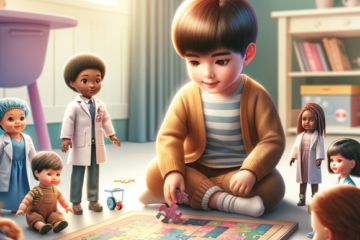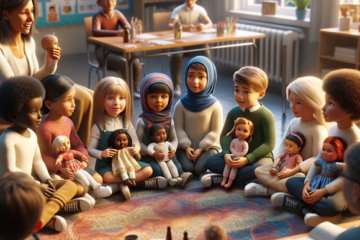In today’s ever-evolving society, the impact of childhood toys extends far beyond mere playthings; they often serve as subtle yet powerful influencers in shaping our perceptions and understanding of the world around us. One such example is the influence of dolls, which have long been symbolic artifacts of familial roles and expectations, particularly in regard to motherhood.
From the earliest iterations of dolls to the modern-day Barbie or American Girl, these figures have subtly communicated societal norms and expectations surrounding family dynamics and maternal roles. Through their portrayal in various forms of media, including literature, television, and film, dolls have perpetuated ideals of family and motherhood, often idealized and romanticized to fit cultural narratives.
The impact of dolls on children’s perceptions of family and motherhood is multi-faceted. Firstly, they serve as tools for imaginative play, allowing children to mimic and internalize societal norms and behaviors associated with familial roles. Through nurturing and caring for their dolls, children learn about empathy, responsibility, and the importance of familial bonds, all of which are central tenets of motherhood.
Moreover, dolls often reflect societal standards of beauty and femininity, further reinforcing traditional gender roles and expectations. The portrayal of dolls as nurturing caregivers, with their pristine appearances and perfectly coiffed hair, subtly communicates to children what it means to be an idealized mother figure within society.
However, it is essential to recognize that the influence of dolls on children’s perceptions of family and motherhood is not inherently negative. While they may perpetuate traditional ideals, they also provide opportunities for critical reflection and dialogue. By engaging with dolls in imaginative play, children can explore and challenge societal norms, fostering a deeper understanding of diverse family structures and maternal experiences.
Furthermore, the evolution of dolls in recent years reflects a growing awareness of the need for inclusivity and representation within children’s toys. Dolls are now available in a range of ethnicities, body types, and abilities, offering children the opportunity to see themselves reflected in their toys and challenging narrow definitions of family and motherhood.
In conclusion, the influence of dolls in perpetuating ideals of family and motherhood is undeniable. However, it is essential to approach their impact with nuance and critical thought. By recognizing the role of dolls in shaping children’s perceptions and engaging in open dialogue about the diverse realities of family life, we can harness their potential as tools for positive social change and empowerment. Ultimately, through thoughtful reflection and inclusive representation, we can ensure that dolls continue to inspire imagination while encouraging children to question and redefine societal norms surrounding family and motherhood.



0 Comments